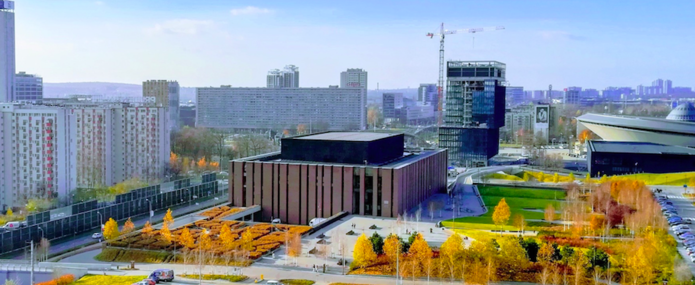The 24th Conference of the Parties (COP24) to the United Nations Framework Convention on Climate Change (UNFCCC), which will take place from2 to 14 December in Katowice, Poland, is expected to mark the culmination of two key processes under the Paris Agreement: the adoption of the rules for implementing the agreement (rulebook) and a first review of collective action (as part of the Talanoa Dialogue). What is the scope of these processes and what can we expect from this COP?
The Paris Agreement not only sets a common objective for international climate action - to limit global warming well below +2°C and continue efforts to contain it to +1.5°C - but also organizes a political dynamic to gradually reduce the gap between the individual actions of States and the collective objective they have set themselves. This is based on two elements:
- procedural rules to go beyond simply tallying individual country commitments (Nationally Determined Contributions, NDCs) and assess their scope and effectiveness, while also strengthening collective action. Progress made on the rulebook in Katowice must be measured against this balance;
- a cyclical political process, around a central meeting (global stocktake) every five year, to draw up a comprehensive review of climate action and maintain momentum. The Talanoa Dialogue, to be held in Katowice, is a test run that should be assessed in terms of its ability to generate this momentum by 2020, in response to the IPCC's call for urgent and in-depth action on all economic drivers.
Define the procedures and governance instruments of the Paris Agreement
The rulebook development process has been the subject of long and complex negotiations since COP22 in Marrakech, with technical discussions that actually reflect political debates, aimed at developing governance instruments that are faithful to the "spirit" of the Paris Agreement.
What do these operating rules cover? On the one hand, they define the information that countries should provide in order to clarify their climate actions (both on mitigation and adaptation) and their contribution to the international solidarity effort (including financial means), ensuring transparency and comparability of national efforts, a prerequisite for collective trust. On the other hand, these rules aim to organize voluntary cooperation mechanisms for mitigation and the consequences of non-compliance. To make the Paris Agreement truly effective, these rules should be as clear and precise as possible. Yet, on the eve of Katowice, the basis for negotiation is still nearly 230 pages long.
Among all these elements, the three key points that will be discussed during COP24 are:
- The definition of the framework for transparency of action and support applicable to all Parties, taking into account differing capacities, without legitimizing differential treatment between developed and developing countries;
- Finance. In addition to counting and reporting flows, discussions focus on the amount of flows granted, their predictability, the negotiation of post-2025 amounts, etc;
- Carbon cooperation mechanisms, which allow a country to offset its emissions by purchasing credits from another country (with a risk that these avoided emissions are counted twice - a "carbon leak").
Enhancing the political process for more ambitious climate action
The first political review of global mitigation efforts (known as the Talanoa Dialogue) concludes at COP24 under the auspices of the two successive presidencies of COP23 and 24, Fiji and Poland. During a closing ministerial dialogue, governments will have to take into account the technical contributions submitted over the past year[1]. On this basis, a two-year political phase can be opened in order to set in motion the domestic efforts necessary to raise national ambition by a majority of countries, in accordance with the ambition mechanism contained in the Paris Agreement [2].
However, at least two important factors may slow momentum following this assessment: first, the lack of involvement of the Polish Presidency, which has actively advocated against raising European ambition; second, the lack of strong international leadership capable of meeting people's expectations through a response commensurate with the main contribution to this dialogue, the IPCC Special Report on a 1.5°C global warming.
To date, no country has sent a clear signal for the revision of its contribution. The European Union seemed to be leading the way by adopting new renewable energy and energy efficiency targets for 2030, which mechanically should lead to a more ambitious NDC. However, discussions in the Council (-40% in 2030) were not successful, despite proposals from the Commission (-45%) and Parliament (-55%), blocked in particular by opposition from the governments of Germany (on the grounds that the current commitments have not been met) and Poland (on the grounds that going too fast and alone is to the detriment of the most vulnerable). Unblocking the European position will be essential in order to build a cooperative international dynamic, especially given the retreating positions of several States, (e.g. the United States, Australia, and COP25 Chair Brazil).
Special attention will also be paid to the issue of climate financing. Indeed, developing countries will not only want to ensure the financial flows they need in order to gradually transform development patterns (consistent with the objective set by developed countries at Copenhagen to mobilize $100 billion per year); they will also expect clear signals regarding the continuation and expansion of these flows.
The impacts of climate change are being felt ever-more strongly, and non-governmental actors, such as companies, cities or territories have taken the lead in climate action, particularly following the California Summit. With France’s climate finance-focused G7 chairship and the United Nations Secretary General’s Climate Summit on the horizon, COP24 is an opportunity for States to build momentum and collective ambition before the 2020 deadline.
[1] View the blog article Talanoa Dialogue : a positive kick-off but an uncertain outcome



